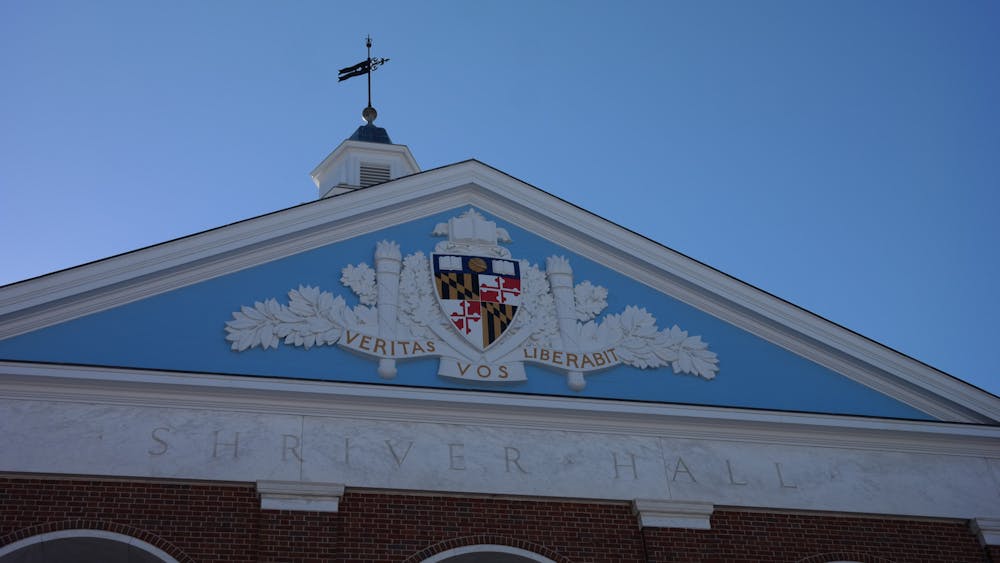The Student Government Association (SGA) discussed the Committee to Establish Principles on Naming’s ongoing efforts to rename Hopkins buildings, scholarships and programs tied to racism or inequality at its weekly meeting on Feb. 16.
The 22-member committee includes administrators, faculty, graduate students and one undergraduate student.
Lawrence Jackson, Bloomberg Distinguished Professor of English and History and a co-chair of the committee, stated that the committee’s work gives the University an opportunity to be a national leader on the issue.
“Each institution has its own unique case. I have been thinking very much about creating a principle that could be applied broadly and one that it would work very effectively, but also one that might give the opportunity for people who will go through this process after us something to learn from,” he said.
He emphasized that one important element in the renaming process has been the idea of injury.
“The existence of injured communities, injured groups, the way that harm can ripple out from an original act to subsequent generations. This has been something that we’ve been grappling with and wanting to capture,” he said. “We are well aware that naming is not a permanent process, but an evolutionary act. One that we would have to reckon consistently with shift and change.”
Jackson reported that the committee has spoken with undergraduates, staff, faculty and community members and will create a working draft at the end of the week.
Junior Class President Nathan Mudrak emphasized the need for caution in the renaming process.
“If we can anticipate in any way that a name can do harm, we should not use it,” he said.
Mudrak also questioned whether the committee’s work has been influenced by the recent discovery that the University’s founder Johns Hopkins was an enslaver.
However, the findings were announced last December, while the naming committee was established over the summer as part of its Diversity and Inclusion initiative. Jackson responded that it has not influenced the committee’s work.
Freshman Class President Kobi Khong expressed concern for tokenization, the practice of symbolic but largely not meaningful gestures for inclusivity.
Tony Anderson, vice chair of the Hopkins Board of Trustees and co-chair of the committee, pointed out that the committee is not directly responsible for naming but instead is working to create a set of criteria and processes to deal with existing names.
“We’ve heard uniformly that people want to see the diversity of the University reflected in the names of the buildings or features. It is not our intent to satisfy that goal by tokenism. We would not anticipate that we would be successful if one or two things happen to be named after an impacted group, and someone concluded that the work is done,” he said. “If we do all our work, it should help inform future names.”
SGA President Sam Mollin suggested that SGA members be part of the committee’s deliberations.
“We have a Black caucus, a Latinx caucus and a woman and gender minority caucus,“ he said. “So if there’s a building that needs to be renamed because the person was a really abhorrent sexist, then it makes sense to have an SGA member from the gender and minority’s caucus to be on the committee for things relevant in the area.”
SGA also heard a presentation from the development team of NOVID, a contact tracing app that informs users of potential exposure to COVID-19. The app does not track user location and operates anonymously.
Senior Class Senator JJ Tie, the co-chair of the Health, Safety and Sustainability Committee, presented the Contact Tracing Resolution that calls on the University to mandate the usage of the digital contact tracing service.
Senior Class Senator Ananya Kalahasti believes NOVID could be a useful tool for the University to consider as it improves the utility of apps already in use.
“If we agree that NOVID is a contact-tracing app, it makes a lot more sense for us to be thinking about what Prodensity can do better and what it can do in different ways, because it still takes the better parts of automated services without having to talk to contact tracers in person,“ she said.
Junior Class Senator Megan Chien noted that the contact tracing resolution was not targeted to bring in more apps but to evaluate how contact tracing is performed in general.
According to Tie, the bill could be a starting point for implementing mandatory location services to address concerns about large gatherings.
The bill, which passed unanimously in committee, was tabled.
Correction: A part of Mollin’s remarks was inaccurately transcribed in a previous version of this article.
The News-Letter regrets this error.





